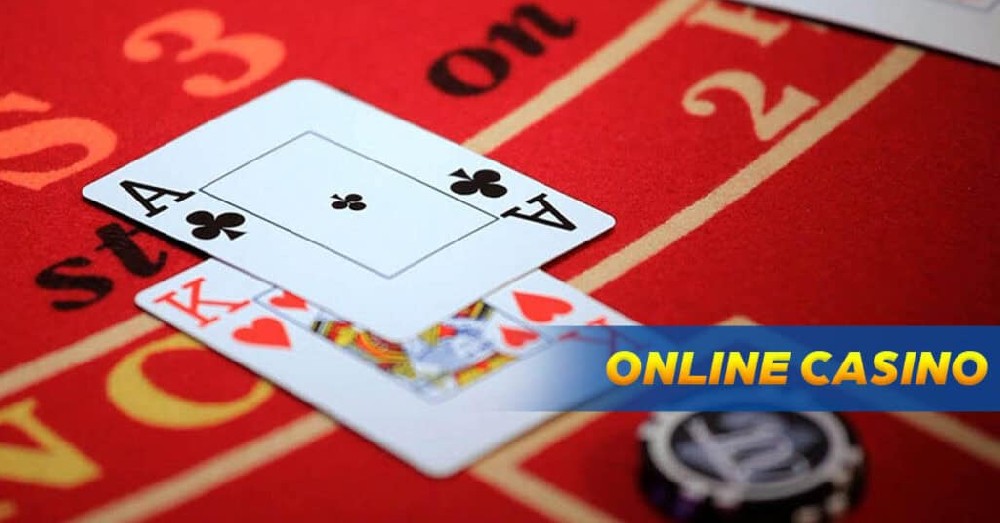01
Register
Download the app and signup for account
02
Get Ready
Deposit & get ready for play betting
03
Enjoy
Betting more and more & enjoy game

Today, we'll introduce 10 basic strategies to help you dominate in cash game competitions. You'll learn when to bluff in the flop round, how to counter limpers, and more.
Make sure to stay tuned till the end and listen to the two additional audio tips provided by poker strategy experts Doug Polk and Ryan Fee.
But first, let's explain what a cash game is, in case any readers need to catch up.
What is a Cash Game? A cash game is a type of poker game where chips represent real money, and players can enter and exit freely. Unlike tournaments, where chips do not represent actual currency and prizes are paid out to specific players based on their performance in the tournament.
Cash Game Tip 1: Avoid inflating the pot with medium-strength hands. Use them to bluff. Medium-strength hands are often the trickiest to play. When you have these hands, you should generally check, as they perform well as bluff catchers in smaller pots.
So, medium-strength hands are often your bluffing hands. Let me give you a few examples:
J♠ 8♠ 6♥ A♠ 4♠ against A♣ 8♠ 5♣ 8♥ 7♥ on K♠ 8♣ 4♥ These hands are decent, but they wither when multiple bets and/or raises start flying into the pot. Thus, the best way to use these hands is to check at least one street (usually the flop).
Now, keep in mind that if your opponent shows weakness by checking twice or checking to you, these hands gain value because your opponent might bet with their stronger hands. This is typically when you should start betting to extract value from them.
Master battle-tested cash game weapons with the Upswing Lab
Learn More Now!
Cash Game Tip 2: Bet heavily when holding top pairs or better. When you have strong top pairs or better, you should bet heavily. These hands want to build the pot because they are favorites to win.
These hands will represent your value betting range. Here are some examples:
A♣ K♦ against K♥ T♣ 5♦ K♠ T♣ against T♥ 8♠ 6♣ Q♠ J♣ T♥ 7♦ Q♠ Note that you want to choose hands that can comfortably make a pot-sized bet on most runouts.
Cash Game Tip 3: Bluff with hands that have good backdoor potential in the flop round. When you have a hand with good backdoor (runner-runner) potential, you likely should bet as a bluff. You want to choose hands that can turn into strong draws and potentially hit flushes or straights on the river.
These types of hands are excellent candidates for bluffs because they can hit very disguised strong hands. Here are some examples:
A♣ 9♠ 3♣ with 7♠ 6♠ - Can make a strong draw on any 5, 8, or spade. Also has inside straight draw to any 4 or 10. Q 7♠ 5♠ with J 8♠ - Can make a strong draw on any 6 or diamond. Also has inside straight draw to any 4, 9, or 10. Q♣ 6♣ on K♥ 7♥ 5♣ - Can make a strong draw on any 4, 8, or club. Also has inside straight draw to any 3 or 9. Note that with these hands, you should continue firing on the turn only if you improve to an actual draw.
Cash Game Tip 4: Almost always 3-bet when you have a strong hand. When you have QQ+ and AK, avoid getting trapped pre-flop. These premium hands perform best in large pots, so you should aim to build the pot quickly by 3-betting.
You should also balance your 3-bet range by bluffing with hands like A2s-A5s and suited connectors. You can visualize the range here:
Balanced Cash Game 3-bet Range Example of balanced cash game 3-bet range (Red = 3-bet, Blue = Non 3-bet)
Note that this is an example of an early position versus early position 3-bet range, which is why it's very tight. You need to widen your 3-bet range by including more value bets and bluffs in later positions compared to early positions.
If one of your opponents is 3-betting heavily pre-flop and then folding rarely, you should make significant adjustments to your 3-bet range, making it more value-heavy. Against such a loose opponent, something like this would work better:
Value Heavy Cash Game 3-bet Range Example of value heavy cash game 3-bet range (Red = 3-bet, Blue = Non 3-bet). Also known as a linear range or a merged range.
Note that this range doesn't include the earlier bluffs. That's because they will rarely fold pre-flop and often be dominated by your opponent's unique holdings (K7s, Q7s, A7s, ATo, etc.). Also, notice the expanded value range, now including AJo, AQo, ATs, KQ, TT, and JJ. If your opponent is calling very wide, you can go even further and start 3-betting with QJ and ATo.
On the other hand, if your opponent is frequently folding to 3-bets, you should make the opposite adjustment: 3-bet more bluffs and premium hands.
Cash Game Tip 5: Be selective with your bets in multiway pots in the flop round. In multiway pots, you need to be selective with the hands you bet in the flop round. The more players see the flop, the stronger hands you should bet. This is because the likelihood of opponents hitting two pairs or better increases significantly.
So, you should:
Check top pairs and overpairs if there are 4 or more players in the pot. These hands have lower win rates in 4-way pots compared to heads-up pots.
Bet small (1/4-1/3 pot) when you have two pairs+ or extremely strong draws in such situations. Betting larger might scare away everything but the strongest hands.
Fold more bluff catchers, even if you bet very small, as your opponents are unlikely to bluff in this unfavorable situation. Cash Game Tip 6: Bet heavily when heads-up and in favorable positions. In heads-up pots, you should frequently lead out into the pot from a favorable position and float instead of continuing to bet when your opponent shows weakness. This type of bet is called a "float bet."
This kind of bluff is often effective against weaker players because they can't defend their check-calling range effectively and only choose to check-call with weak hands.
However, be cautious about float betting against stronger players who can check-call with strong hands. If this strategy isn't working, it can end up costing you a significant amount of money.
Learn strategies to beat your opponents from world-class players
Find Out More>>
Cash Game Tip 7: Bet aggressively with your strongest hands in the flop round after defending your big blind. After defending your big blind to combat steals from players in position, you should almost always check-raise with your strongest hands. This allows you to start building the pot and gives you a chance to go all-in on the river.
Make sure to pay close attention to the board texture when check-raising. For example, two pairs are worth check-raising on a flop of 9♥ 5♠ 4♣, but the same two pairs should check-call on a board with potential flush and straight draws like 6♥ 5♠ 4♠ or 9♥ 5♥ 4♥.
Cash Game Tip 8: Warm-up before a session or tournament. This is a mental game tip, but it's just as important as the tactical strategies above.
Have you ever seen athletes like LeBron James start a game without warming up first? I bet if you asked any professional athlete, they'd tell you they always warm up.
Now, you might be thinking poker isn't a sport, so what does "warming up" mean? I'm talking about mental warm-up - preparing mentally to endure the grind or the tournament.
So, what should your warm-up routine include? The answer is relative and based on your current tactical and mental game leaks.
List down your most common mistakes (like playing too loose pre-flop, overbetting, tilting, etc.), and jot down corrections for those specific leaks. This will focus your mind on those particular areas, helping you avoid those mistakes.
Over time, these leaks will diminish through this process. But the game is complex, so there will always be things to address. Make sure your warm-up routine stays updated.
For some professional insights on how to warm-up, check out our Three-Step Poker Warm-Up Routine.
Cash Game Tip 9: Handle losing sessions wisely. Nobody likes to be a loser, especially when you have bills to pay. Unfortunately, no matter how skilled you are at poker, there will be times when you lose. Here's how you might want to handle them.
Doug Polk Cash Game Comeback vs. Sauce On September 29th, 2013, Doug played against Ben Sulsky. Things didn't look great halfway through, but he persevered!
This is especially tricky in cash games because you can leave at any time. If you quit too frequently and too quickly, you'll run into volume issues. If you're always chasing losses, you'll end up playing long, frustrating sessions and ending with unnecessarily large red numbers.
So, when should you quit, and when should you stay to fight another day?
In these situations, Doug Polk asks himself 3 questions. Next time you find yourself stuck in a cash game, try asking yourself these questions:
Am I playing well? Be objective here and genuinely analyze your gameplay. It's easy for people to just say they played well and attribute losses to bad luck, but often, when people start losing, their gameplay starts to deteriorate. Is the game still good? Sometimes there are lineups you simply can't leave. In these cases, you usually just need to keep playing. Of course, if you're playing terribly, you might still want to go home and sleep it off. Am I up for the challenge? Sometimes your focus isn't in the game, and in that case, it's best to leave. Your performance might weaken, and you'll start making more costly mistakes, digging yourself into a deeper hole. Cash Game Tip 10: Exploit limpers' tendencies. Whenever you see a player limping, you should see an opportunity to take their chips in a relatively short amount of time—or at least a sizable chunk of it.
Since most limpers are weaker players, you need to isolate them by raising with a wider range of hands. Force the limpers to call your raise pre-flop, getting them out of position and making it easier for you to exploit their weaknesses.
Remember, poker is a game of skill and strategy. Mastering these tactics will give you an edge over your opponents. Good luck at the tables!








